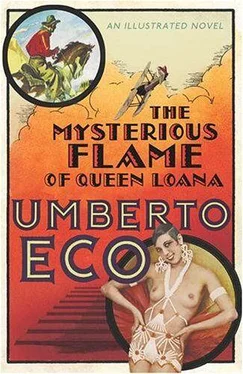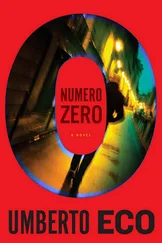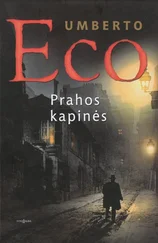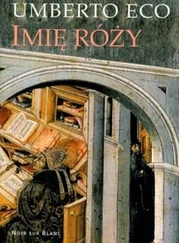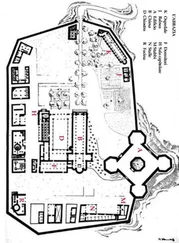Umberto Eco - The Mysterious Flame Of Queen Loana
Здесь есть возможность читать онлайн «Umberto Eco - The Mysterious Flame Of Queen Loana» весь текст электронной книги совершенно бесплатно (целиком полную версию без сокращений). В некоторых случаях можно слушать аудио, скачать через торрент в формате fb2 и присутствует краткое содержание. Жанр: Исторический детектив, на французском языке. Описание произведения, (предисловие) а так же отзывы посетителей доступны на портале библиотеки ЛибКат.
- Название:The Mysterious Flame Of Queen Loana
- Автор:
- Жанр:
- Год:неизвестен
- ISBN:нет данных
- Рейтинг книги:3 / 5. Голосов: 1
-
Избранное:Добавить в избранное
- Отзывы:
-
Ваша оценка:
- 60
- 1
- 2
- 3
- 4
- 5
The Mysterious Flame Of Queen Loana: краткое содержание, описание и аннотация
Предлагаем к чтению аннотацию, описание, краткое содержание или предисловие (зависит от того, что написал сам автор книги «The Mysterious Flame Of Queen Loana»). Если вы не нашли необходимую информацию о книге — напишите в комментариях, мы постараемся отыскать её.
The Mysterious Flame Of Queen Loana — читать онлайн бесплатно полную книгу (весь текст) целиком
Ниже представлен текст книги, разбитый по страницам. Система сохранения места последней прочитанной страницы, позволяет с удобством читать онлайн бесплатно книгу «The Mysterious Flame Of Queen Loana», без необходимости каждый раз заново искать на чём Вы остановились. Поставьте закладку, и сможете в любой момент перейти на страницу, на которой закончили чтение.
Интервал:
Закладка:
My grandfather had had other volumes bound, though he kept the old illustrated covers: The Adventures of a Parisian Lad, The Count of Monte Cristo, The Three Musketeers, and other masterpieces of popular romanticism.
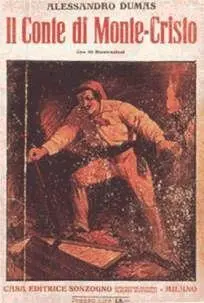
There were two versions of Jacolliot’s Les ravageurs de la mer, the French original and Sonzogno’s Italian edition, retitled Captain Satan. The engravings were the same, who knows which I had read. I knew there were two terrifying scenes: first the evil Nadod cleaves the good Harald’s head with a single hatchet blow and kills his son Olaus; then at the end Guttor the executioner grasps Nadod’s head and begins squeezing it by degrees between his powerful hands, until the wretch’s brains spurt straight up to the ceiling. In the illustration of that scene, the eyes of both victim and executioner are bulging nearly out of their sockets.
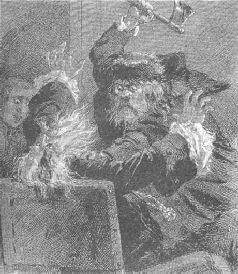
Most of the action takes place on icy seas covered by hyperborean mist. In the engravings, foggy, mother-of-pearl skies contrast "With the whiteness of the ice. A wall of gray vapor, a milky hue more evident than ever… A fine white powder, resembling ashes, falling over the canoe… From the depths of the ocean a luminous glare arose, an unreal light… A downpour of white ashy powder, with momentary rents within which one glimpsed a chaos of indistinct forms… And a human figure, infinitely larger in its proportions than any dweller among men, wrapped in a shroud, its face the immaculate whiteness of snow… No, what am I saying, these are memories of another story. Congratulations, Yambo, you have a fine short-term memory: were these not the first images, or the first words, that you remembered as you were waking in the hospital? It must be Poe. But if these lines by Poe are so deeply etched in your public memory, might that not be because when you were small you had these private visions of the pallid seas of Captain Satan?
I stayed there reading (rereading?) that book until evening. I know that I was standing when I began, but I ended up sitting with my back against the wall, the book on my knees, forgetful of time, until Amalia came to wake me from my trance, shouting, "You’ll ruin your eyes like that, your poor mother tried to teach you! My goodness gracious, you didn’t set foot outside today, and it was the prettiest afternoon a body could ask for. You didn’t even come see me for lunch. Come on, let’s go, time for supper!"
So I had repeated an old ritual. I was worn out. I ate like a boy at the height of a growth spurt, then was overcome by drowsiness. Usually, according to Paola, I read for a long time before falling asleep, but that night, no books, as if on Mother’s orders.
I dozed off at once, and I dreamed of the lands of the South Seas, made of streaks of cream arranged in long strands across a plate of mulberry jam.
7. Eight Days in an Attic
____________________
What did I do for the past eight days? I read, mostly in the attic, but the memory of one day blurs into the next. I know only that I was reading in a wild, disorderly fashion.
I did not read everything word for word. Some books and magazines I skimmed as though I were flying over a landscape, and as I did I was aware of already knowing what was written in them. As though a single word could summon back a thousand others, or could blossom into a full-bodied summary, like those Japanese flowers that open in water. As though something were striking out on its own to settle in my memory, to keep Oedipus and Don Quixote company. At times the short circuit was caused by a drawing, three thousand words for one picture. At times I would read slowly, savoring a phrase, a passage, a chapter, experiencing perhaps the same emotions sparked by my first, forgotten reading.
It is pointless to speak of the gamut of mysterious flames, mild tachycardias, and sudden flushes that many of those readings gave rise to for a brief instant, which dissolved as quickly as they had come, making way for new waves of heat.
For eight days, I rose early to take advantage of the light, went upstairs, and remained there until sundown. Around noon, Amalia, who was alarmed the first time she could not find me, would bring me a plate with bread, salami or cheese, two apples, and a bottle of wine. ("Lordy, Lordy, he’ll get himself sick again and then what will I tell Signora Paola, at least do it for me, stop or you’ll go blind!") Then she would leave in tears, and I would drink down nearly all the wine and keep turning pages in an inebriated state, and of course I can no longer reconstruct the befores and afters. Sometimes I would go downstairs with an armful of books to hole up elsewhere, so as not to be a prisoner of the attic.
Before my first ascent I called home, to give Paola an update. She wanted to know about my reactions, and I was circumspect: "I’m getting settled in, the weather is splendid, I take walks outside, Amalia is a sweetheart." She asked me if I had been to the local pharmacist yet to have my blood pressure checked. I was supposed to do it every two or three days. After what had happened to me, I should not mess around. And above all, my pills, each morning and evening.
Right after that, with some guilt, but with a sound professional alibi, I called the office. Sibilla was still working on the catalogue. I could expect the proofs in two or three weeks. After many encouraging, paternal words, I hung up.
I asked myself whether I still felt anything for Sibilla. Strangely, the first few days in Solara had cast everything in a different light. Sibilla was now beginning to seem like a distant childhood memory, while everything I was gradually excavating from the fog of my past was becoming my present.
Amalia had told me that one entered the attic from the left wing. I had imagined a spiral wooden staircase, but instead there were stone steps, quite comfortable and practical-otherwise, I later realized, how would they have been able to carry up all that stuff they stashed away?
As far as I knew, I had never seen the inside of an attic. Nor of a cellar, for that matter, but everyone knows what cellars are like: subterranean, dark, damp, always cool, and you have to bring a candle, or a torch. The gothic romance is rich in the subterranean, the monk Ambrosio wandering gloomily among crypts. Natural underground passageways, like Tom Sawyer’s caverns. The mystery of darkness. All houses have cellars, but not all have attics, especially in cities, where they have penthouses. But is there really no literature of attics? And in that case what is Eight Days in an Attic ? The title came to mind, but nothing else.
Even if you do not go through them all at once, you can tell that the attics of the Solara house extend over all three wings: you enter an area that stretches from the façade to the rear of the building, but then narrower passages open and bulkheads appear, wooden partitions that divide the spaces, routes defined by metal shelving units or old chests of drawers, the interchanges of an endless labyrinth. Having ventured down one of the corridors on the left, I turned once or twice more and found myself back in front of the entrance.
Immediate sensations: heat, above all, which is natural just beneath a roof. Then light: it comes in part from a series of dormer windows, which can be seen when you look at the front of the house, but which on the inside are largely obstructed by piles of junk, so that in some cases the sunlight barely filters through, reduced to yellow blades astir with an infinity of particles, revealing that the penumbra must also be crazed with a multitude of motes, spores, primordial atoms caught up in their Brownian skirmishes, primal bodies swarming in the void- who spoke of those, Lucretius? Sometimes those slants of light ricocheted off the glass panes of a dismantled buffet or a full-length mirror that from another angle had looked like merely another dull surface propped against the wall. And then the occasional skylight, darkened by decades of encrusted pluvial detritus but still able to make a pale zone of illumination on the floor.
Читать дальшеИнтервал:
Закладка:
Похожие книги на «The Mysterious Flame Of Queen Loana»
Представляем Вашему вниманию похожие книги на «The Mysterious Flame Of Queen Loana» списком для выбора. Мы отобрали схожую по названию и смыслу литературу в надежде предоставить читателям больше вариантов отыскать новые, интересные, ещё непрочитанные произведения.
Обсуждение, отзывы о книге «The Mysterious Flame Of Queen Loana» и просто собственные мнения читателей. Оставьте ваши комментарии, напишите, что Вы думаете о произведении, его смысле или главных героях. Укажите что конкретно понравилось, а что нет, и почему Вы так считаете.
